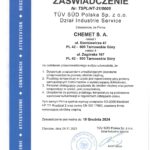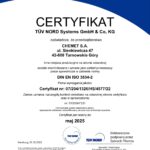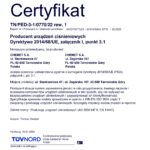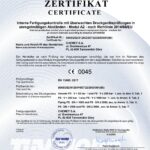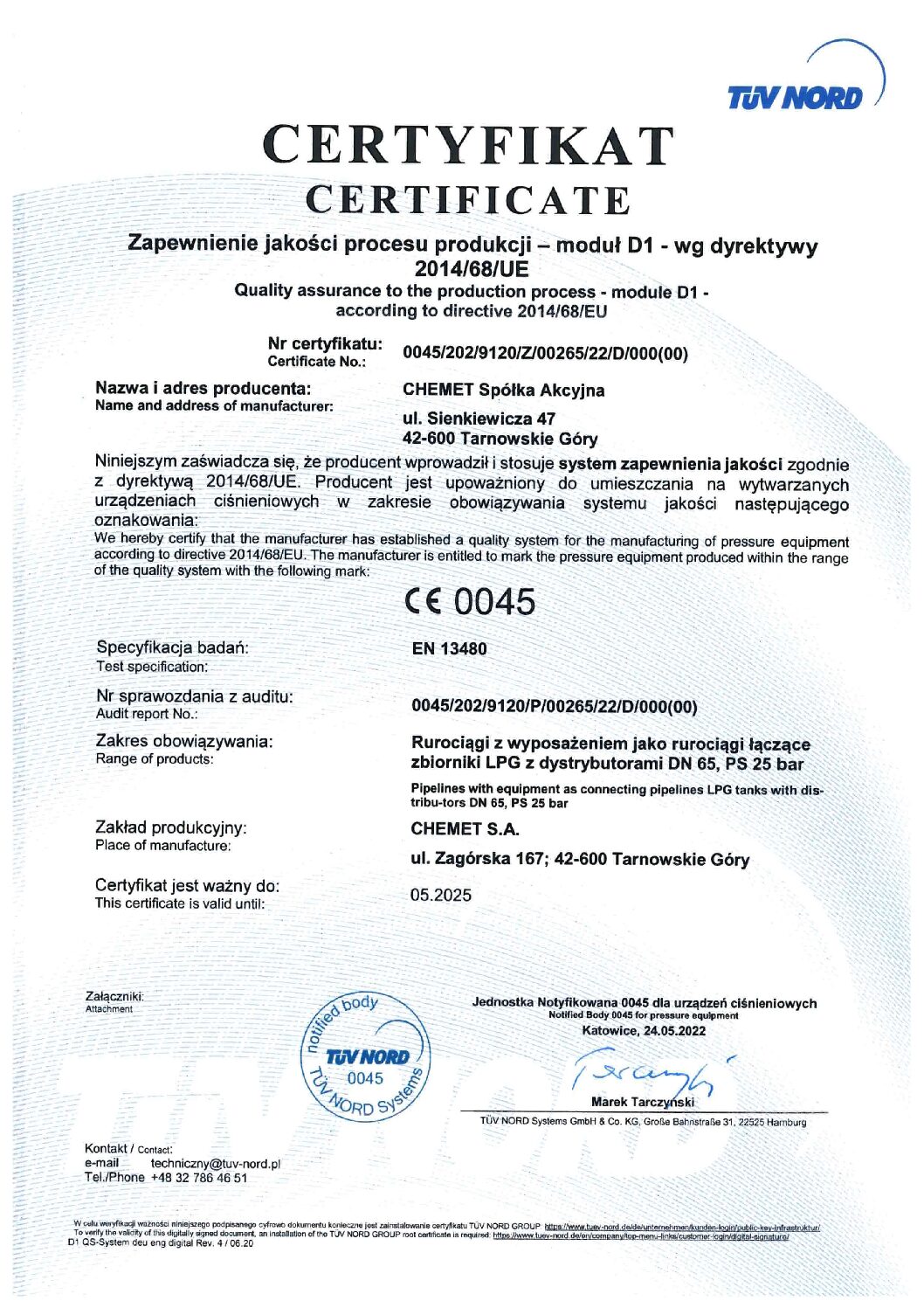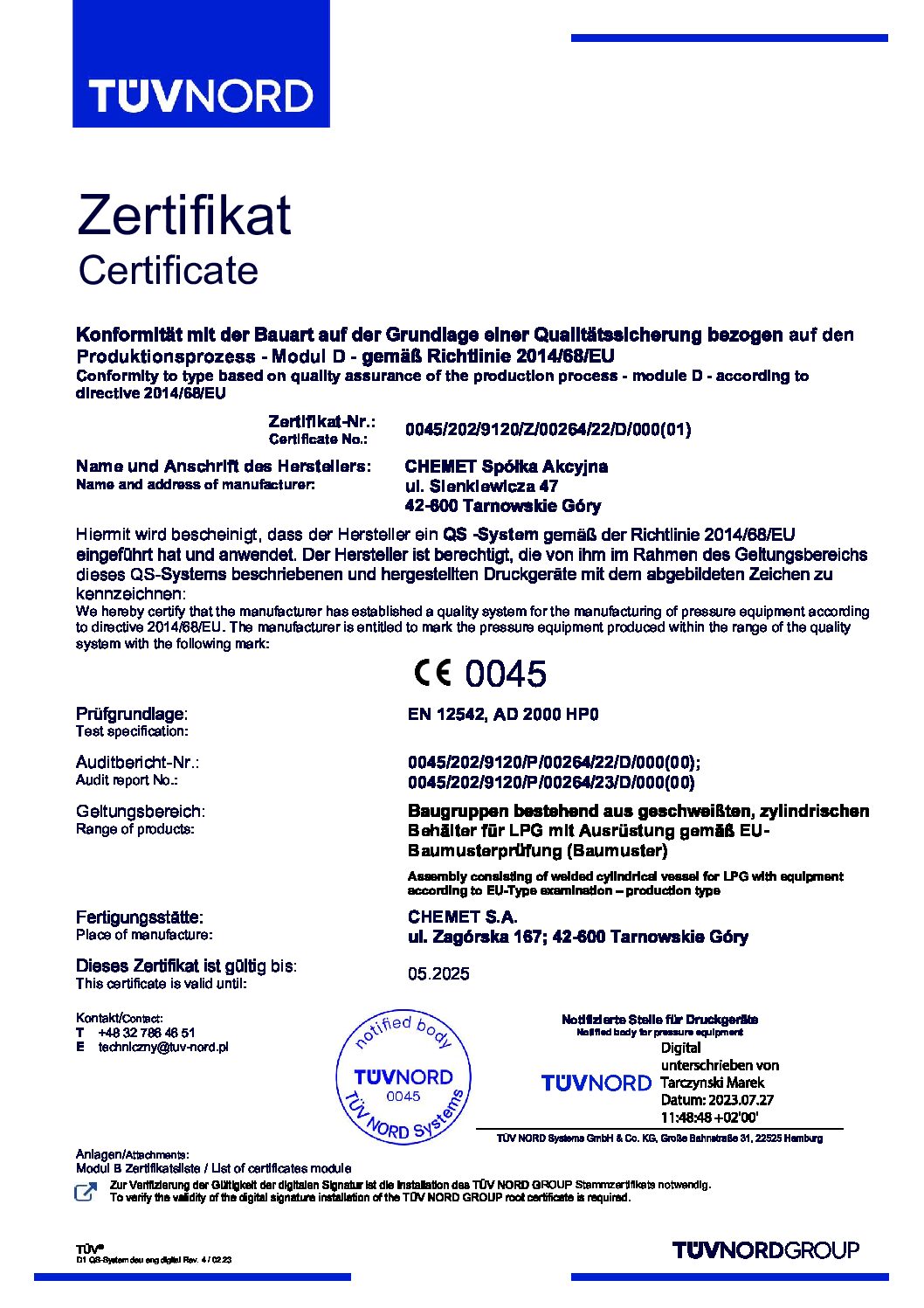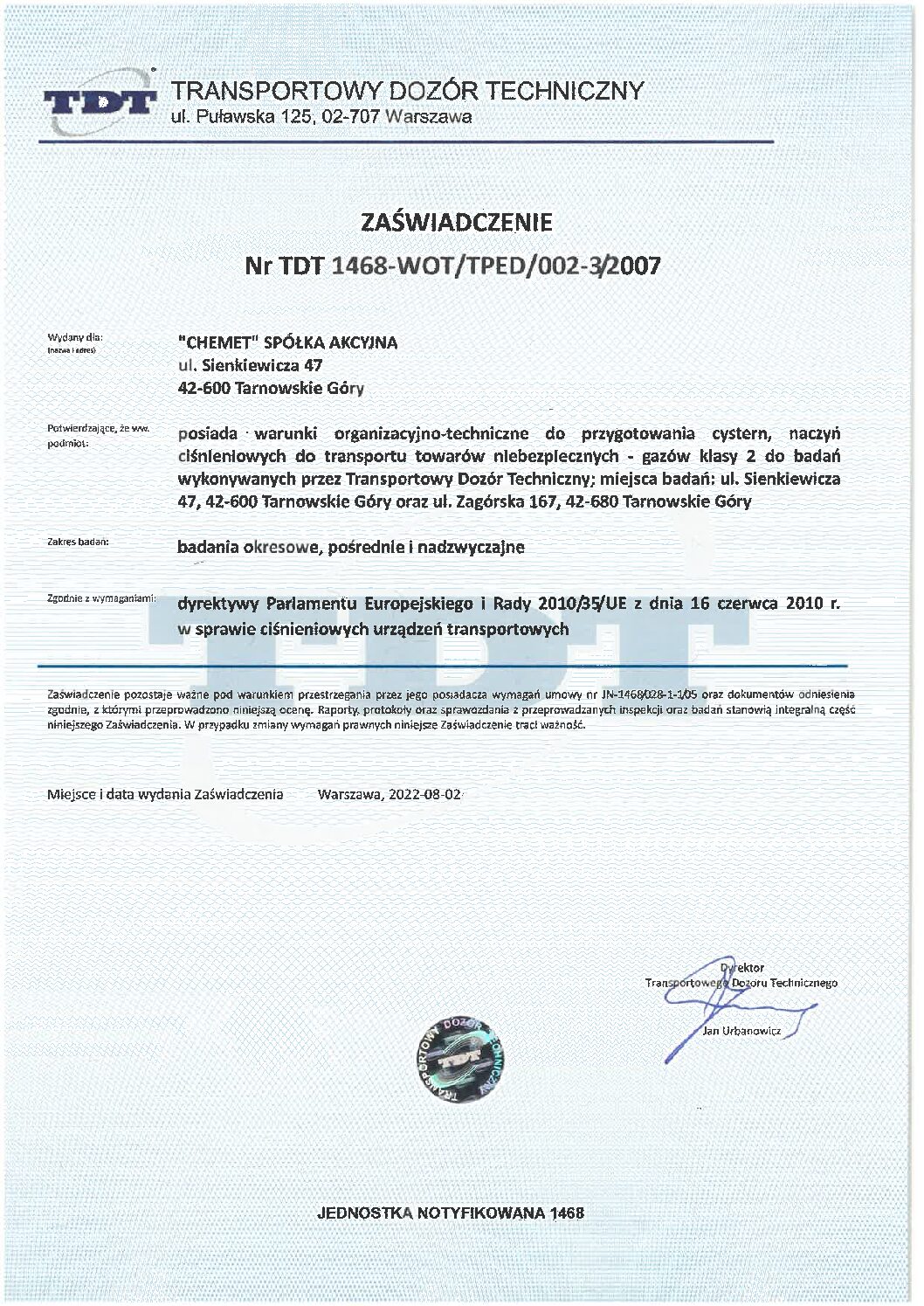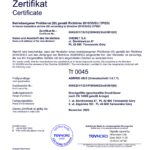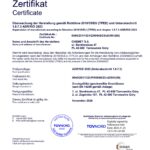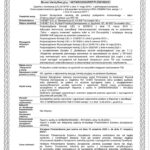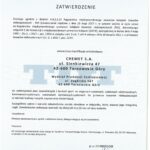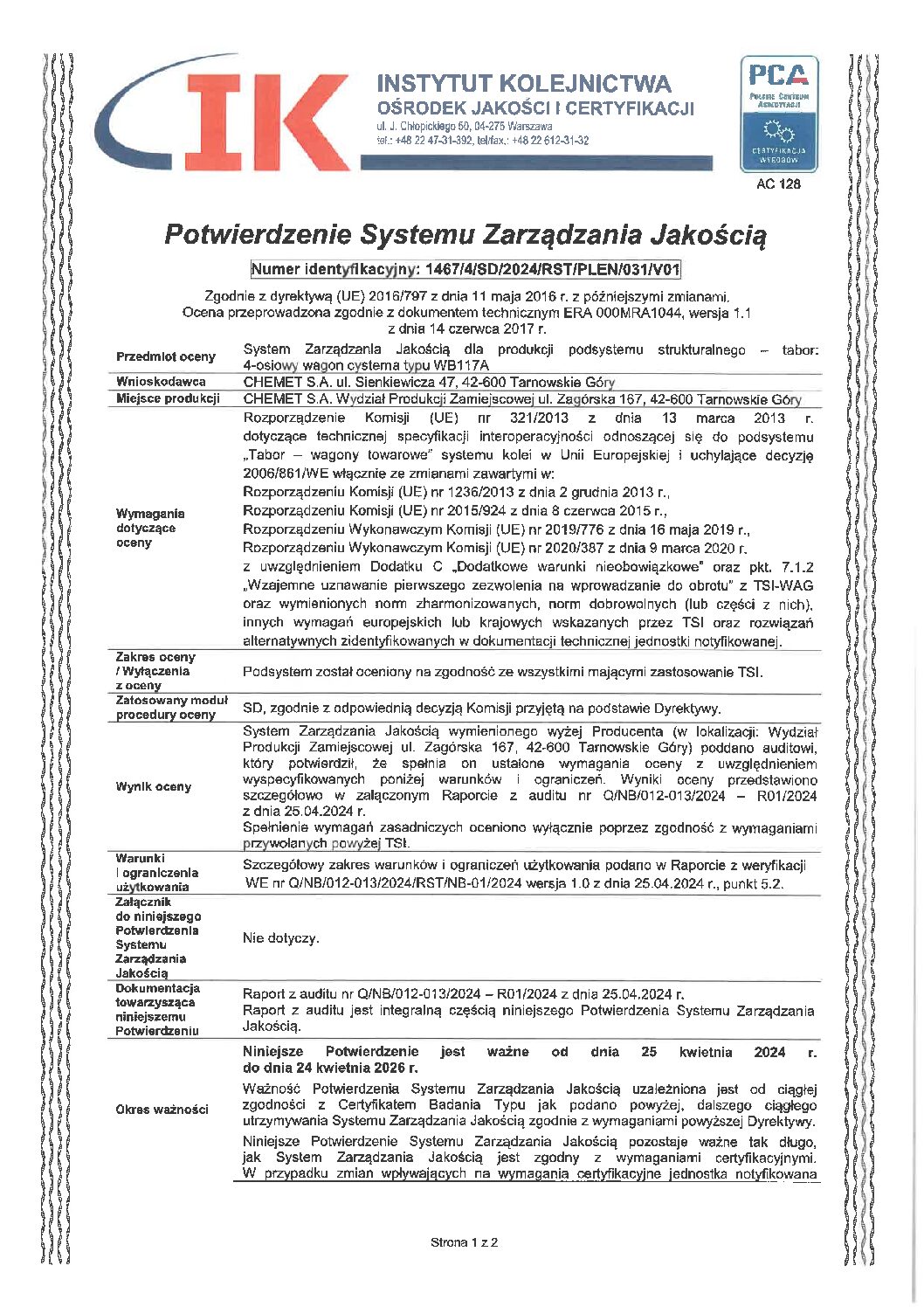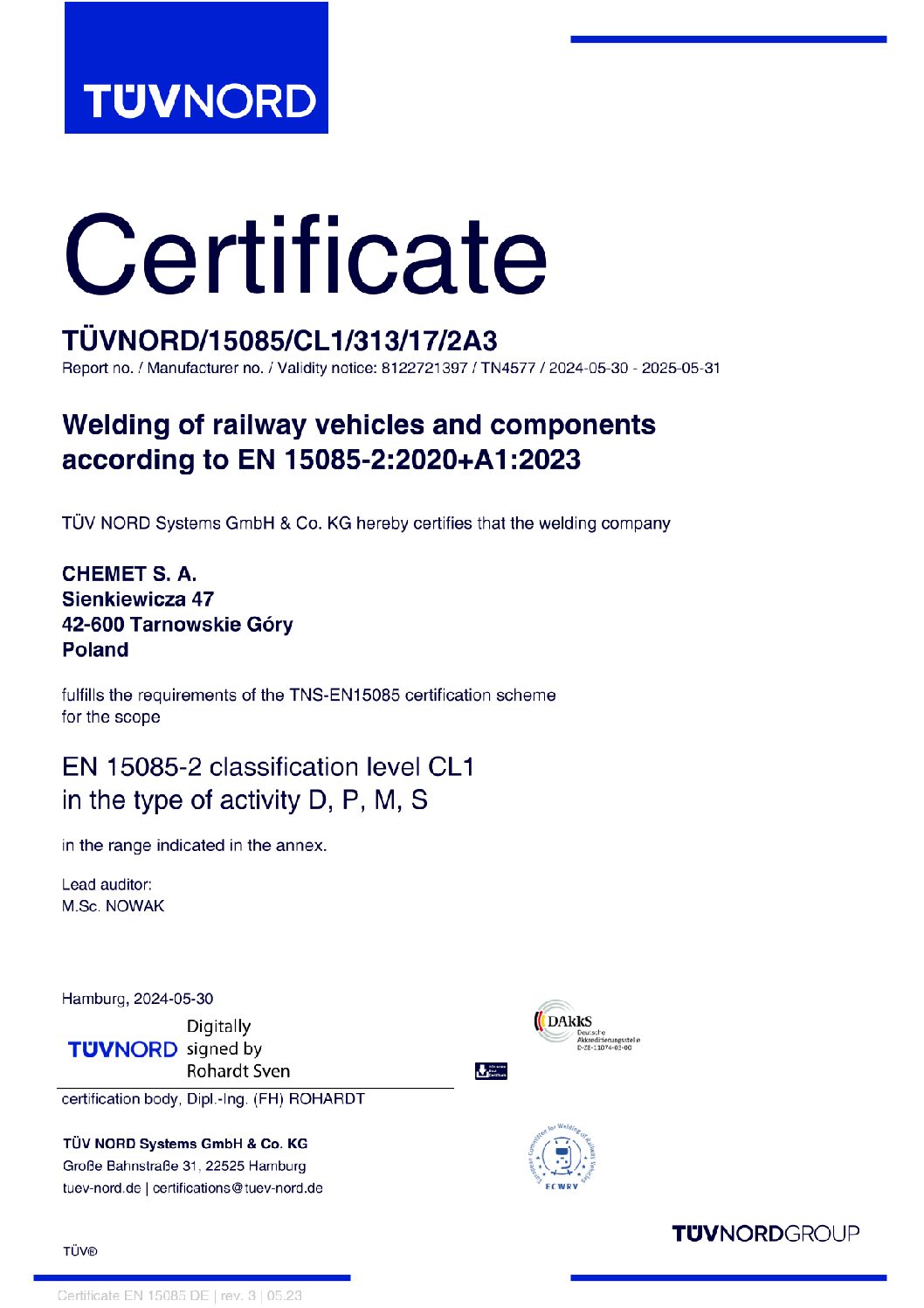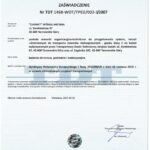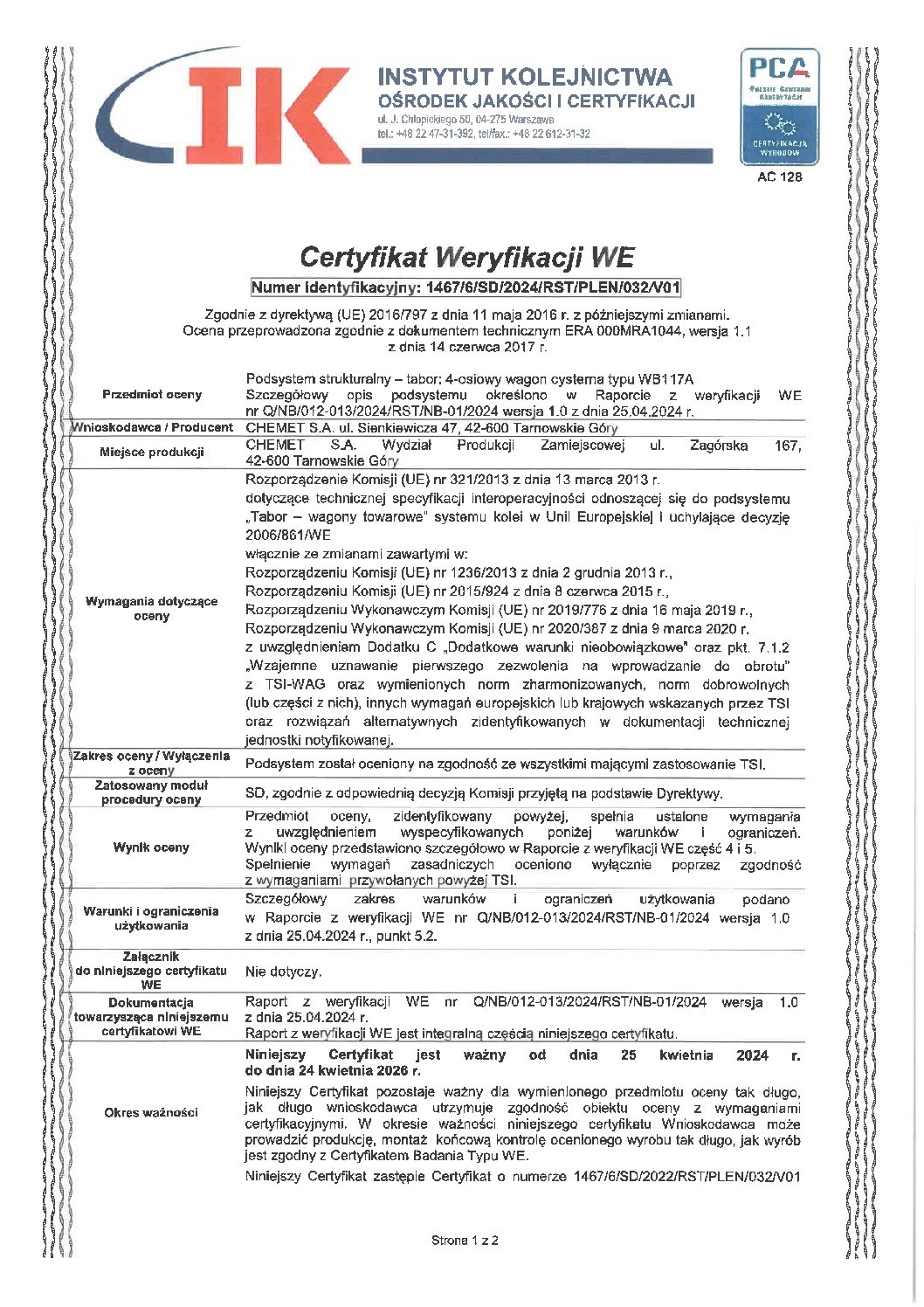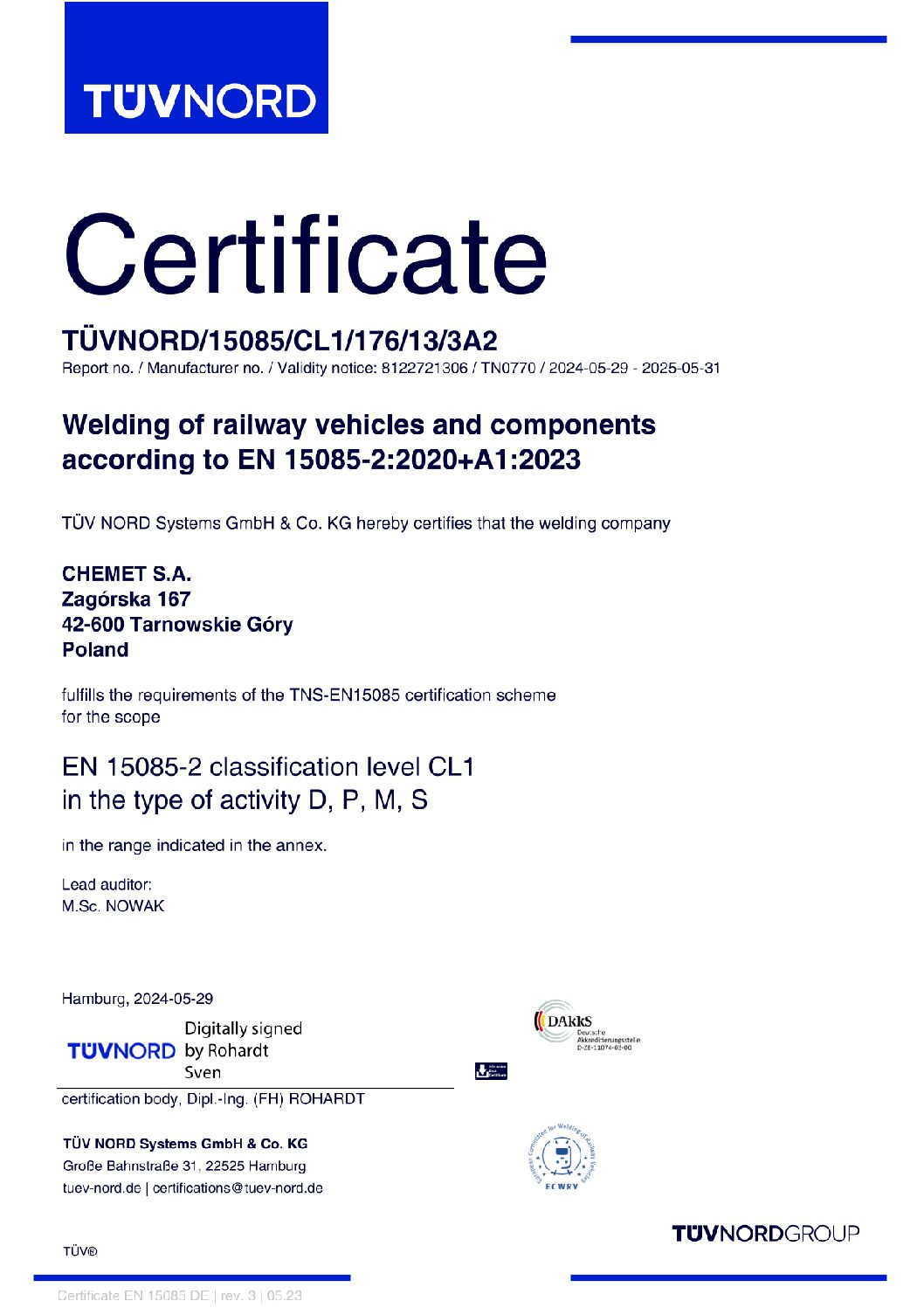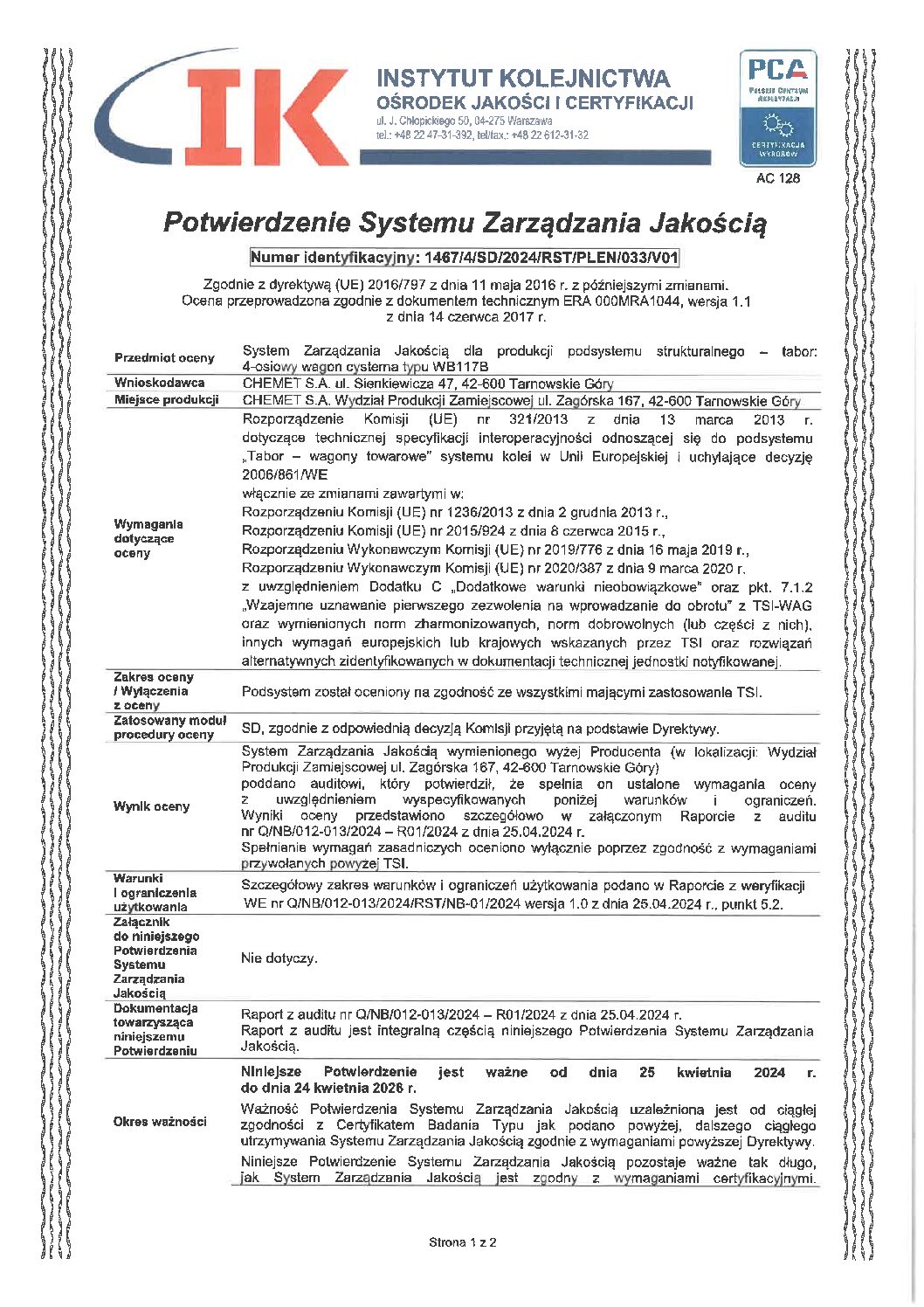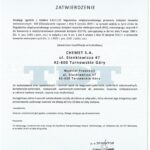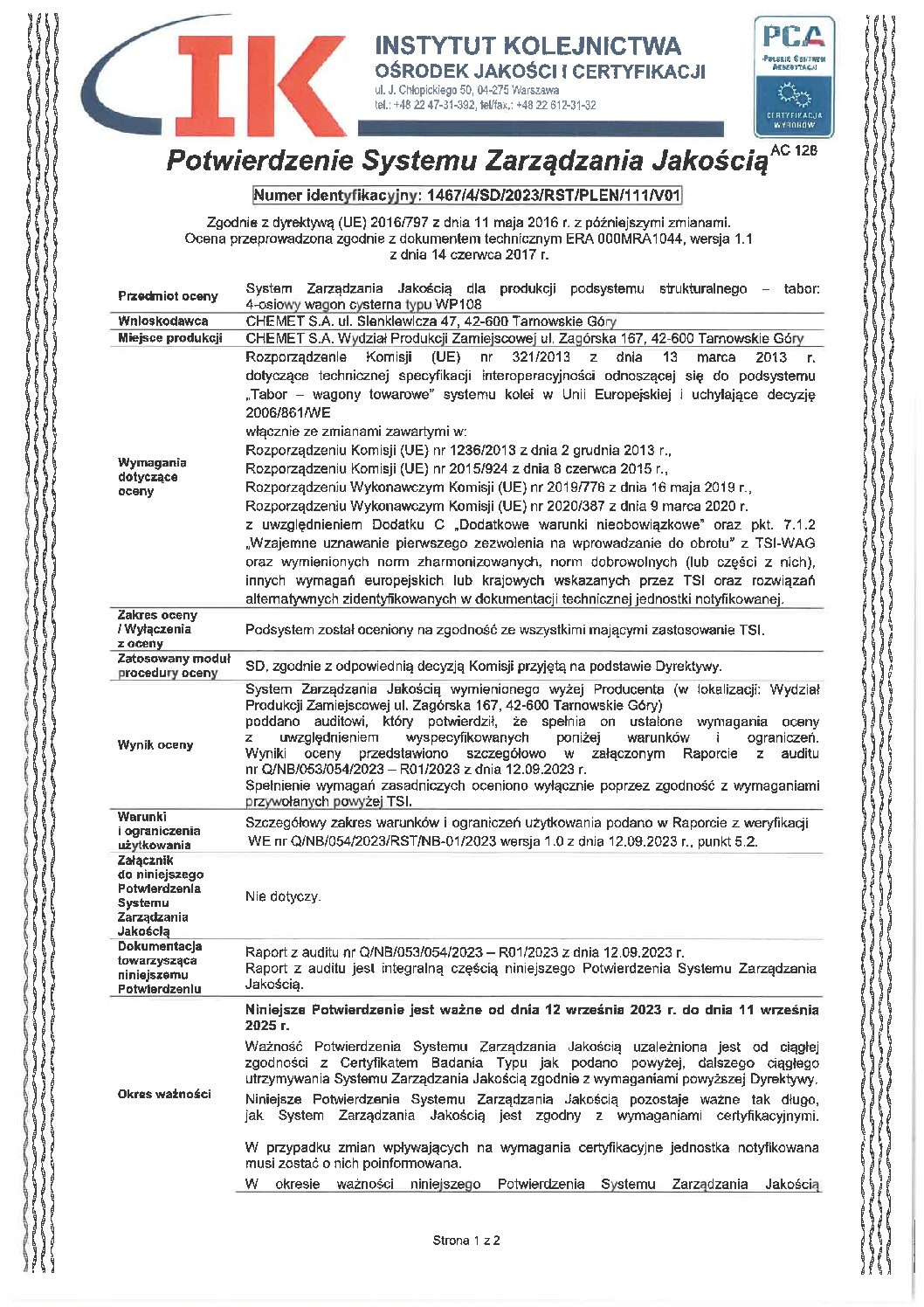TECHNOLOGY AND QUALITY
The combination of experience and modern technologies may bring perfect results only when the strict quality policy is correctly applied.
For more than fifty years of its existence, CHEMET has consequently carried out the policy of products and services quality improvement.
n the globalization age of the world economy quality is perceived as a special kind of management technique, which bases on detailed quality inspection on each stage of manufacturing process.

TECHNOLOGIES USED AT CHEMET
The manufacturing process is currently conducted in CHEMET in two plants (in Tarnowskie Góry and Strzybnica) with the combined area of 21 700 m2 under the roof, and total plant area of 74 280 m2.
The company’s manufacturing processes is based on four basic production technologies:
- welding,
- machining,
- hot and cold plastic working,
- assembly fitting.
he machine park and technical equipment owned by the Company secure the full implementation of the production cycle for the offered range of products, in particular, unique specialty products with a high degree of complexity. Most of CHEMET’s products, due to the required work parameters (high pressure, low or high temperatures), is manufactured under strict control procedures in the stages of designing, manufacturing and operation.

WELDING TECHNOLOGIES
Welding is the most important technological process carried out in CHEMET.
In the field of pressure equipment and process equipment manufacturers, the appropriate range of implemented and precisely used welding methods decides on the release of products for use by notified institutions (UDT, TÜV and ASME). Taking care of the highest quality of welds, CHEMET for years have been using ESAB automatic and semi-automatic welding machines, as well as the latest manual welding machines.
Currently, in the welding technological process five methods are used complying with the requirements of designing and implementing regulations (among others: UDT, ASME, AD-Merkblätter, TRG, TRB, TRT, LR):
- Submerged-Arc Welding – acronym according to ASME system (SAW),
- welding with MIG (i.e. metal inert gas) and MAG methods (i.e. metal active gas) – acronym according to ASME system (GMAW),
- Flux Cored-Arc Welding – acronym according to ASME system (FCAW),
- welding with TIG method (i.e. Gas Tungsten-Arc Welding) – acronym according to ASME system (GTAW),
- welding with coated electrode (so-called Shielded Metal-Arc Welding – acronym according to ASME system (SMAW).
- The welding methods shown above are applied during the assembly of carbon and high-alloy steel equipment.

METALWORKING TECHNOLOGY
The term of “metalworking technologies” used in CHEMET refers to a number of technological processes applied during the manufacture of pressure equipment.
During the execution of special technological processes requiring heat treatment (annealing), chemical treatment passivation, pickling) and hot and cold working of large diameter dish heads CHEMET co-operates with professional partners, who guarantee the highest quality of services rendered with the application of advanced technologies.
The most important technological processes connected with widely understood metalworking, include:
- Cutting processes
- Turning process
- Drilling process
- Plate rolling
- Press forming
- Shot blasting
- Section and tube bending.
QUALITY POLICY
For every customer realizing our aspiration, we would like to be the most important partner in business. Partner who delivers complex solutions and the highest quality in manufacture of pressure equipment.
These aims are persued by:
- meeting the requirements and expectations of the CUSTOMERS;
- building up a favourable atmosphere for long-term co-operation with CLIENTS and regular SUPPLIERS;
- development of the company towards its better adaptability of its activitis to the needs and quality requirements of the markets;
- on time delivery of the products; constant improvement of the managment system to optimise the key proceses in the company;
- constant improvement of the managment system to optimise the key proceses in the company;
- care of the staff about the costs rationalization and at the same time maintaining high quality of the products;
- staff selection and constant improvement of their skills and knowledge for professional and effective implementation of the processes at the Company;
- improvement and an increase of the scope of products being offered by introducing new production technologies;
- motivating of all the EMPLOYEES to an active participation in the implementation of the QUALITY POLICY
QUALITY ASSURANCE SYSTEMS
In the late 1980s and early 1990s the rapid growth of CHEMET, resulting from the start-up of the LPG tanks series production for Western European countries and the increasing number of export contracts signed with foreign corporations and engineering companies, revealed that implementation and certification of complex quality assurance systems was inevitable and substantial for further market activity.
ASME
In 1992 in order to adjust to the requirements of foreign customers the Executive Board of CHEMET managed to design, implement and certify the quality assurance system in accordance with the ASME (The American Society of Mechanical Engineers) rules. The ASME system bases on globally accepted quality codes of the American organization and comprises the designing and manufacture of pressure vessels according to Section VIII Division I (e.g. process vessels, heat exchangers, outer vacuum furnace bodies) – the termination of a proper manufacture process is confirmed by stamping the U-letter (ASME U-STAMP) on a vessel’s name plate. Because of its strictly technical character the ASME system focuses mainly on design and manufacture aspects of quality assurance. It does not interfere with company’s organizational scheme or formal procedures regarding the execution of commercial contracts.


ISO 9001
Having considered the growing quality requirements due to the intensified competition on the process equipment market, CHEMET, in 1995, decided to start the process of designing, implementation and certification of the Company’s Quality Assurance System with accordance to ISO 9001:1994, which was planned to comprise the processes of designing and manufacturing of all CHEMET products and services. Successful implementation of the System was completed with the final audit, performed in October 1997 by the representatives of Lloyd’s Register Quality Assurance Ltd. As a consequence of this audit CHEMET received the Quality Assurance System Certificate and the Company accomplished the first stage the Quality Assurance Policy. The main objective of the Policy was determined as the certification according to the EU standards before the accession of Poland on May 1st, 2004. The second stage began in 2002 and provided the recertification of the Quality Assurance System in accordance with ISO 9001:2000 standards (process management). The recertification procedure is scheduled to be terminated in July 2003. Currently, our quality management system operates in accordance with the guidelines of the ISO 9001: 2015 standard and refers to the scope of design, production, and regeneration of pressure process equipment and railway tank wagons and also providing comprehensive services of heat treatment.

QUALITY CONTROL
The majority of CHEMET products, due to safety of use and related acceptance regulations and requirements, is a subject of strict internal and external quality inspection and supervision at the stage of designing, manufacturing and operation.
The majority of CHEMET products, due to safety of use and related acceptance regulations and requirements, is a subject of strict internal and external quality inspection and supervision at the stage of designing, manufacturing and operation.
Therefore, during the manufacturing process CHEMET performs a wide scope of inspection tests with the appropriate testing equipment. The company has its own laboratory, where the following destructive and non-destructive tests are performed:

Destructive testing:
- static tensile test,
- technological bend test,
- impact tests,
- Rockwell, Vickers and Bucholtz hardness tests (top coats),
- macro- and microscopic examination.

Non-destructive testing:
- radiography of welds,
- ultrasonic testing of materials and welds,
- magnetic particle inspection,
- colour penetrant inspection,
- paint coating thickness tests,
- paint coating test against electrostatic breakdown.
CERTYFICATES AND APPROVALS
Due to the production profile (pressure equipment) CHEMET has always focused on providing high quality of products and services by observing certain standards, procedures and requirements set out in national and international approvals.
The results of several decades of hard work on quality standards implementation are shown in numerous approvals granted by foreign and domestic notified institutions:
CERTIFICATES FOR THE QUALITY MANAGEMENT SYSTEM
CERTIFICATES FOR THE PRODUCTION AND HEAT TREATMENT PROCESS
CERTIFICATES FOR LPG TANKS
CERTIFICATES FOR TRANSPORTABLE TANKS FOR LIQUEFIED GAS
CERTIFICATES FOR RAILWAY TANKERS



